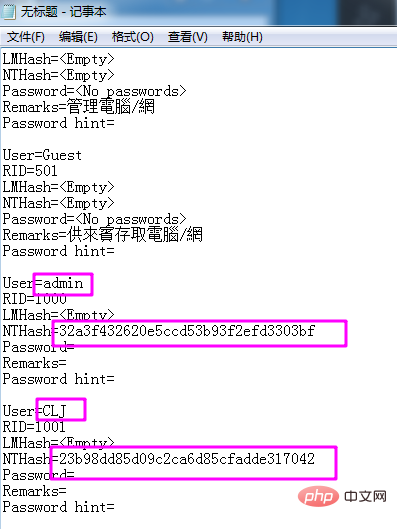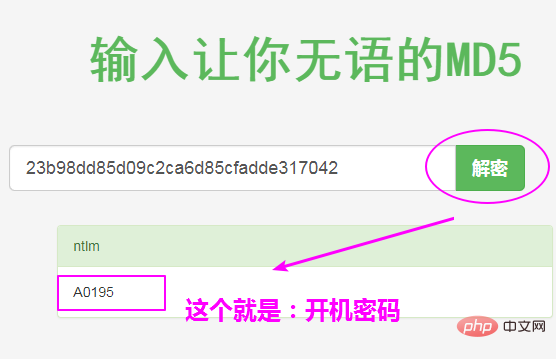
The full name of PSPR is Proactive System Password Recovery, which is a Windows system password recovery software. Its main function is to retrieve the login password in Windows computers; PSPR software can effectively query all password types in Windows, including Login passwords, screen saver passwords, .NET Passport passwords, RAS and dial-up passwords, and more.

The operating environment of this tutorial: Windows 10 system, Proactive System Password Recovery 6, Dell G3 computer.
PSPR's full name is Proactive System Password Recovery, which means "active system password recovery" in Chinese. It is a Windows system password recovery software and a professional-level Windows system password viewer.
PSPR is mainly used to retrieve login passwords in Windows computers. It can effectively query all password types in Windows, including login passwords, screen saver passwords, .NET passport passwords, RAS and dial-up passwords, etc.
If you want to retrieve your login password, you first need to set the U disk boot method in the computer's startup preferences, then open the computer by starting the U disk, enter the Windows environment, and then find the system by running the pspr software login password.
[Usage Tutorial]:
1. Download and install the Proactive System Password Recovery software and open it, then click [Restore Hashes] on the left menu. The file will be automatically decrypted by default. machine power-on password. If you need to crack the power-on password of other computers, check "Manual Decryption", and then select the 3 password files (SAM, SYSTEM, SECURITY) copied from other computers, as shown below:
2. As shown below, select the corresponding SAM, SYSTEM, and SECURITY files respectively, click [Manual Decrypt], and wait for the green status bar to finish and the decryption is completed;
3. Click on the user who needs to decrypt, then right-click to copy the NTHash ciphertext to the clipboard;


FAQcolumn!
The above is the detailed content of what is pspr. For more information, please follow other related articles on the PHP Chinese website!
 How to solve the problem that teamviewer cannot connect
How to solve the problem that teamviewer cannot connect What is the difference between full-width spaces and half-width spaces?
What is the difference between full-width spaces and half-width spaces? What are the advantages of SpringBoot framework?
What are the advantages of SpringBoot framework? Time recording software
Time recording software Is there a big difference between c language and Python?
Is there a big difference between c language and Python? C language to find the least common multiple
C language to find the least common multiple How to use fprintf in matlab
How to use fprintf in matlab How to read data from excel file in python
How to read data from excel file in python